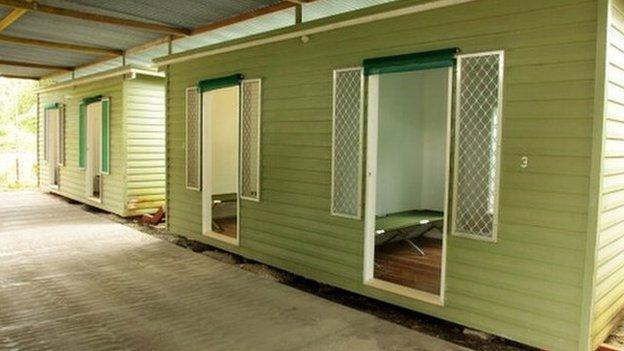Australia's rejected refugees arrive in Cambodia for resettlement
- Published
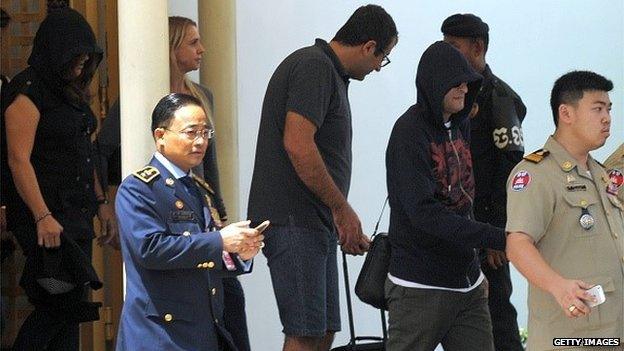
They four refugees have asked for their privacy to be protected and did not speak to media
The first refugees to be resettled in Cambodia from the Australian detention centre on Nauru have arrived in Phnom Penh.
The four people - three Iranians and one Rohingya - were the only people to volunteer for the controversial scheme.
Last year, Cambodia agreed to take in refugees rejected by Australia in return for A$40m ($31m; £20m) in aid.
Rights groups have accused Australia of shirking international responsibility by not taking in refugees.
'We wish them luck'
Australia does not allow asylum seekers or refugees onto its shores, instead detaining them at facilities on the island nation of Nauru and Manus Island in Papua New Guinea.
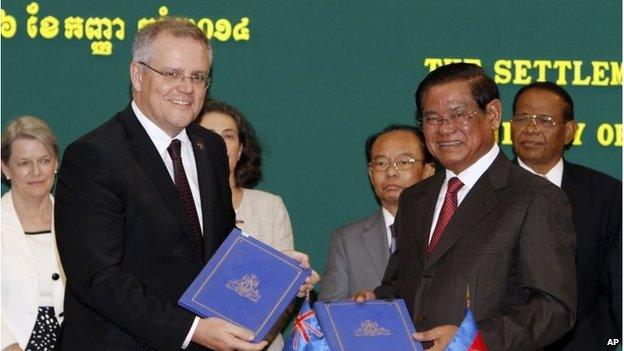
Australia's then Immigration Minister Scott Morrison reached the deal with his Cambodian counterpart Sar Kheng in September last year
Rights group estimate that about 677 detainees are being held on Nauru, sometimes in unsanitary and unsafe conditions.
The four refugees arrived on a commercial flight and were received by the International Organisation for Migration (IOM) and government officials.
"We welcome them and wish them luck in our country," said government spokesman Phay Siphan.
"We are a country of no discrimination and we include these newcomers, to build the country together."

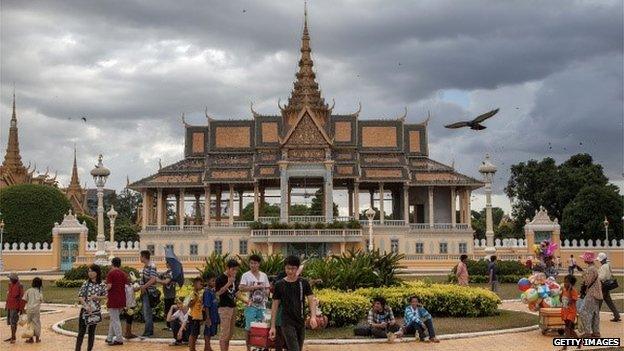
Cambodia is one of the poorest countries in the world
Analysis: Kevin Doyle, BBC News, Phnom Penh
A "fact sheet" on life in Cambodia given out on Nauru, serves to act as an inducement.
It paints an implausibly rosy picture of life, describing the country as "rapidly developing" with "all the freedoms of a democratic society", as well as "a high standard of health care with multiple hospitals", and no "violent crime or stray dogs".
What Australia tells its own citizens about Cambodia is rather different.
"Health and medical services in Cambodia are generally of a very poor quality and very limited in the services they can provide," Australia's Department of Foreign Affairs says on its website.

The group have asked for their privacy to be protected and did not speak to media.
"The group has transferred to temporary accommodation in Phnom Penh, where the IOM will begin to provide essential support, including language training, cultural and social orientation, education services, health services and employment services," the organisation said in a statement, external.
Australia is also providing funds to the IOM as part of the deal.
The UN has spoken out against the resettlement agreement and Cambodia has, in previous years, been criticised for its own record on helping refugees.
"Cambodia clearly has no will or capacity to integrate refugees permanently into Cambodian society," said Phil Robertson, from Human Rights Watch on Thursday.
"These four refugees are essentially human guinea pigs in an Australian experiment that ignores the fact that Cambodia has not integrated other refugees and has already sent Montagnards and Uighur asylum seekers back into harm's way in Vietnam and China."
Australia's Immigration Minister Peter Dutton would not be commenting on the refugee transfer, a spokesperson said.

Australia and asylum
Asylum seekers - mainly from Afghanistan, Sri Lanka, Iraq and Iran - travel to Australia's Christmas Island by boat from Indonesia
The number of boats rose sharply in 2012 and early 2013. Scores of people have died making the journey
To stop the influx, the government has adopted hard-line measures intended as a deterrent
Everyone who arrives is detained. Under a new policy, they are processed in Nauru and Papua New Guinea. Those found to be refugees will be resettled in PNG, Nauru or Cambodia
Tony Abbot's government has also adopted a policy of tow-backs, or turning boats around
Rights groups and the UN have voiced serious concerns about the policies and accuse Australia of shirking international obligations

- Published27 May 2015
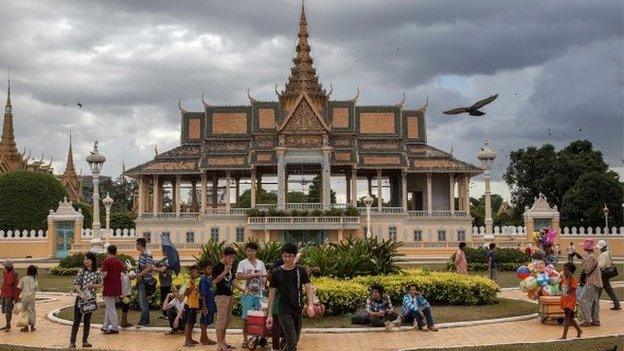
- Published19 May 2015
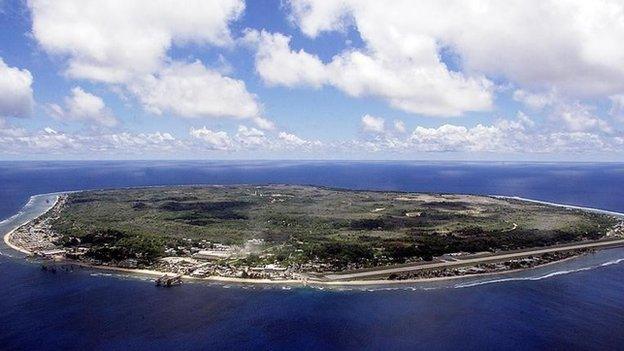
- Published18 February 2015
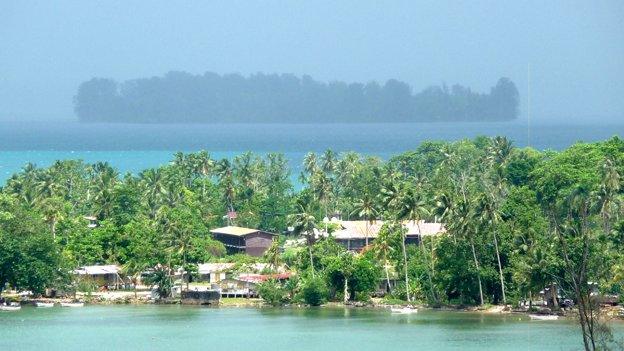
- Published16 January 2015
